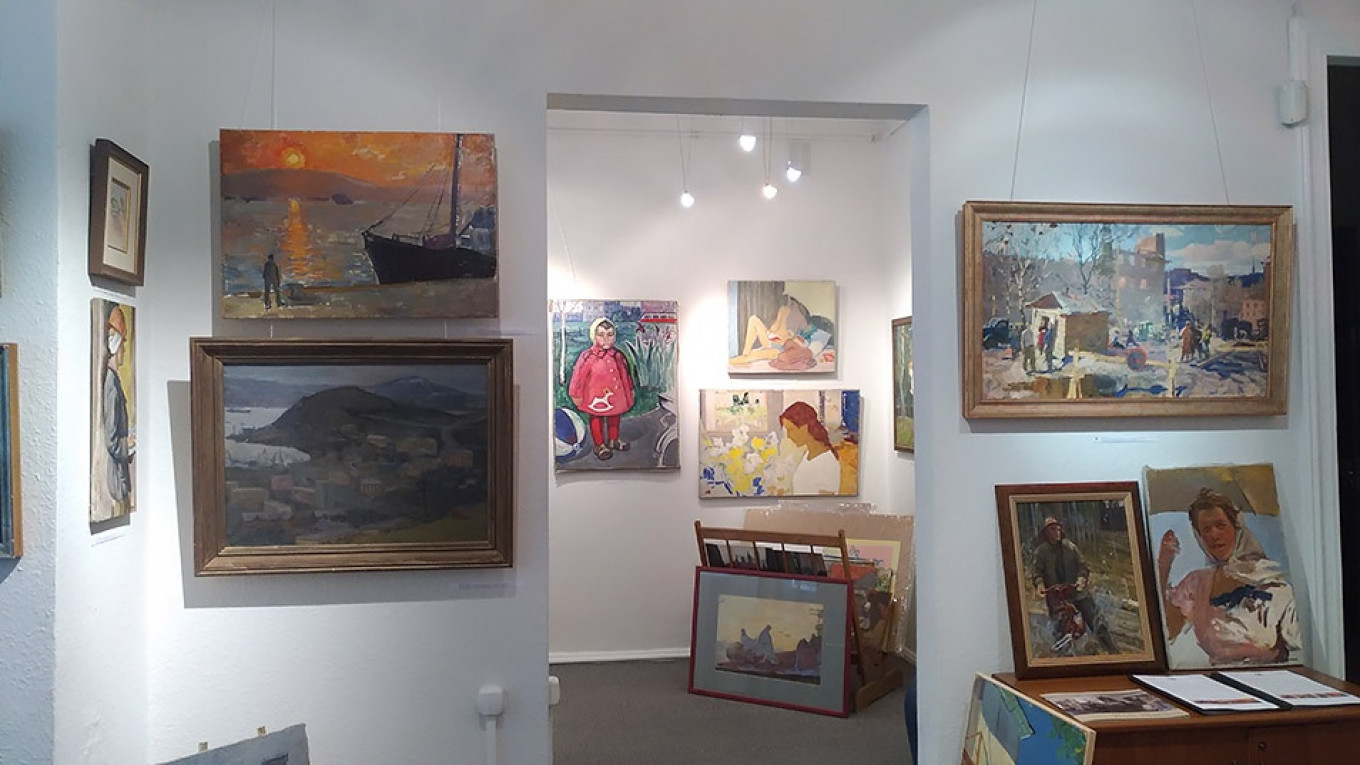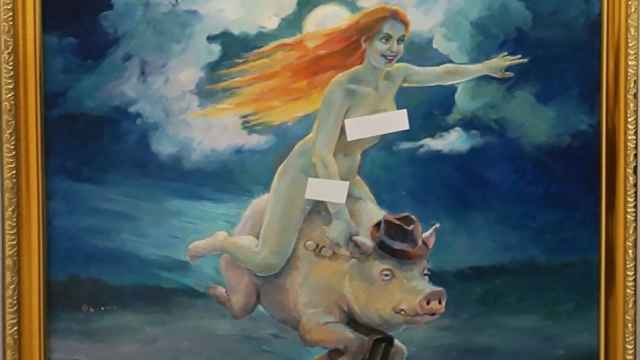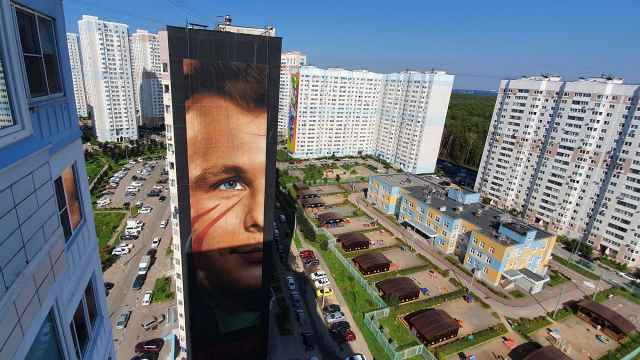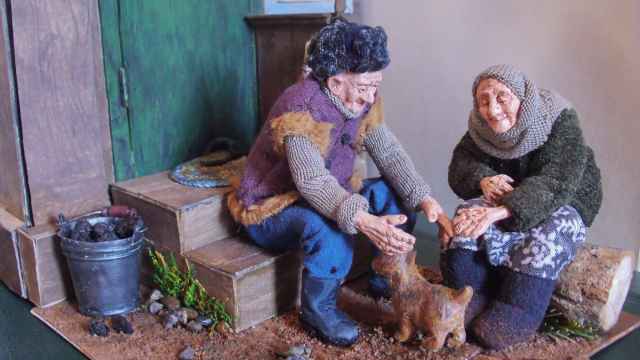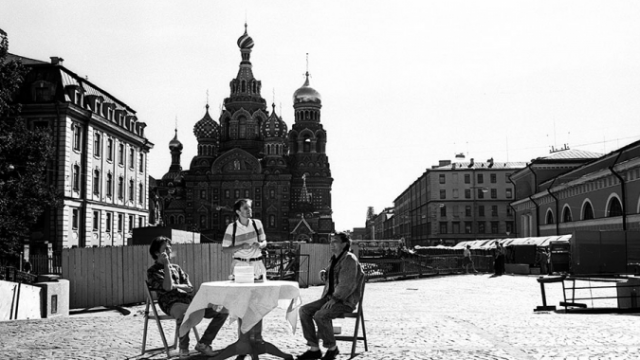The old apartment near Stary Arbat is homey, with white walls, high ceilings, a thin carpet to muffle noise, a sofa and some chairs.
Paintings cover nearly all of the walls of the 100-square meter place, with hundreds more stacked against walls everywhere and others packed on special shelves. A large unframed painting of Vladimir Lenin in dramatic oratory pose drapes what may be a chair: It’s hard to tell because it’s on top of a huge stack of other unframed canvases.
The walls of what might as well be called the living room are covered with gorgeous Russian cityscapes and an occasional, incongruent contemporary painting. On the floor and against the wall is a framed poster featuring, among others, Lenin again and Felix Dzerzhinsky, founder of the Soviet security apparatus.
Welcome to NB Gallery. Natalia Bykova founded it in 1992, and it has been a staple for the Russian and international cultural and art-collecting communities ever since. The gallery’s focus has generally been more on traditional 20th-century Russian and Soviet art, as opposed to the conceptual or unofficial art of the corresponding period, although Bykova and her team have done a fine job of blurring a lot of these boundaries and exploding ideological pigeonholes.
Bykova’s father instilled a passion for art in her, but she specialized in foreign languages as a student. “During those Soviet times, we’d play a game,” she says. “If you had a million dollars, what would you do?” For her, it was clear: She’d open an art gallery.
“Art was always my main interest,” she says. “Though I never had a professional background, I took courses in New York and Moscow. It was my dream to have a gallery.”
MARS was the first private gallery in post-perestroika Moscow, founded in 1988. For over a year, Bykova would call regularly to ask if it had any positions available, and when the answer was occasionally affirmative, the position open was for a cleaner. Nevertheless, Bykova finally landed a job at MARS, and by 1992 she was ready to start her own gallery.
The location she chose was in a former communal apartment in a stylish building built in 1913. “My dream was to make a very homely gallery that wasn’t intimidating to anybody.” Going to a gallery and shopping for art, she says, can make people nervous and self-conscious, afraid of coming across as unknowledgeable or uncool. She wanted to prevent this by providing a warmer, more relaxed setting. And for more than 25 years, NB Gallery has provided that very atmosphere.
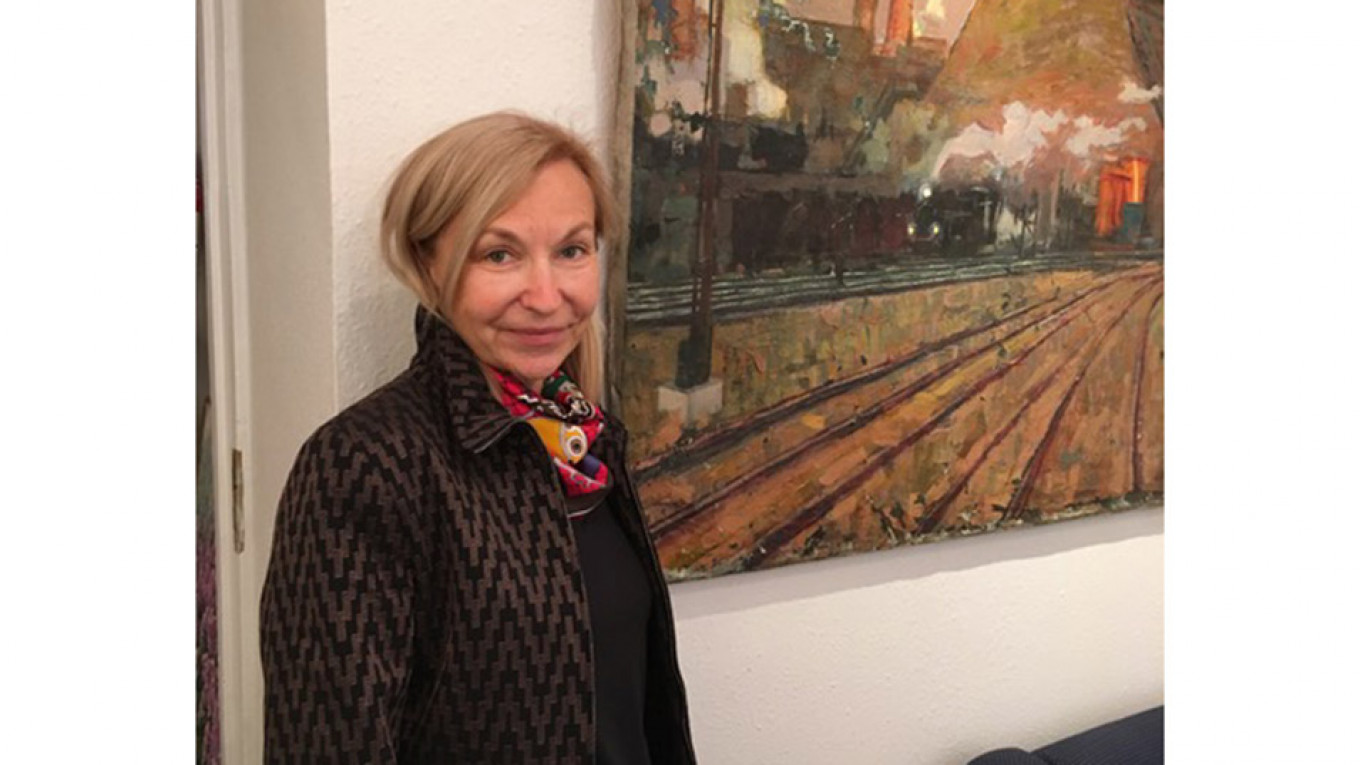
It also found its areas of specialization. Bykova and her team have scoured collections throughout Russia to pull together exhibitions and retrospectives of painters who had been perhaps famous for one or two officially-sanctioned works, but whose larger, more interesting pieces had been lost or forgotten. NB Gallery has become a hub for Russian art from the last century, often eschewing labels such as “socialist realism” — although the gallery has been a popular center for it — “modern,” “traditional” and even “Soviet.”
“I would not even call it Soviet art,” says curator Anna Eramjan, “because that is so ideological.
”The gallery has been particularly savvy in cultivating its Russian and international clientele and visitors. Bykova, Eramjan, and the NB Gallery team organize frequent events — openings, receptions, lectures, programs for children — and they greet guests to the gallery as old friends. “We managed to create a circle of great people,” Bykova says.
“Natalia and NB Gallery have had a profound impact on so many lives,” says Heidi McCormack, an ardent Russian-art collector who lived in Moscow for many years.
“She has introduced many to the amazing and rich world of Russian art and wraps the journey with history and context. My life and my walls would be barren without Natalia.”
The research, collections and exhibitions of NB Gallery have helped audiences to better understand and value art that has been given stifling and rigid labels. Eramjan points to the socialist realist paintings of the 1930s as an example, and discusses how older technical traditions survived in these works.
By extensively traveling, searching, discovering and relocating paintings and drawings, NB Gallery has helped rescue artists from the almost certain obscurity that followed the breakup of the Soviet Union. Interestingly, it has also demonstrated the traditional roots that have inspired some of Russia’s most famous contemporary artists.
On a recent visit, the contemporary paintings that seemed a little out of place were by the renowned modern artist Viktor Umnov. They seem discordant amidst all of the more traditional paintings, and also in NB Gallery generally.
But as it turns out, the other paintings in the room, the gorgeous cityscapes, were also by Umnov, done in the 1950s, 60s and 70s. This exhibition focused on his early career, which has been almost entirely overlooked until now. And after some thought, the newer paintings were only superficially out of place. The gallery hung the recent works to provide a more robust appreciation of his work as a whole.
Eramjan brought tea and chatted about her 24 years at the gallery. She pulled the cityscapes up close. “In a museum,” Eramjan says, “you feel a distance between you and a painting.” Not here.
Bykova is clear that she has always wanted NB Gallery to be a place “where you can relax and chat.”
And with the thousands of pieces of art that her gallery has collected and exhibited over the decades, her guiding philosophy remains straightforward and exacting: “If it’s good and outstanding, that’s what we stand on.”
A Message from The Moscow Times:
Dear readers,
We are facing unprecedented challenges. Russia's Prosecutor General's Office has designated The Moscow Times as an "undesirable" organization, criminalizing our work and putting our staff at risk of prosecution. This follows our earlier unjust labeling as a "foreign agent."
These actions are direct attempts to silence independent journalism in Russia. The authorities claim our work "discredits the decisions of the Russian leadership." We see things differently: we strive to provide accurate, unbiased reporting on Russia.
We, the journalists of The Moscow Times, refuse to be silenced. But to continue our work, we need your help.
Your support, no matter how small, makes a world of difference. If you can, please support us monthly starting from just $2. It's quick to set up, and every contribution makes a significant impact.
By supporting The Moscow Times, you're defending open, independent journalism in the face of repression. Thank you for standing with us.
Remind me later.



